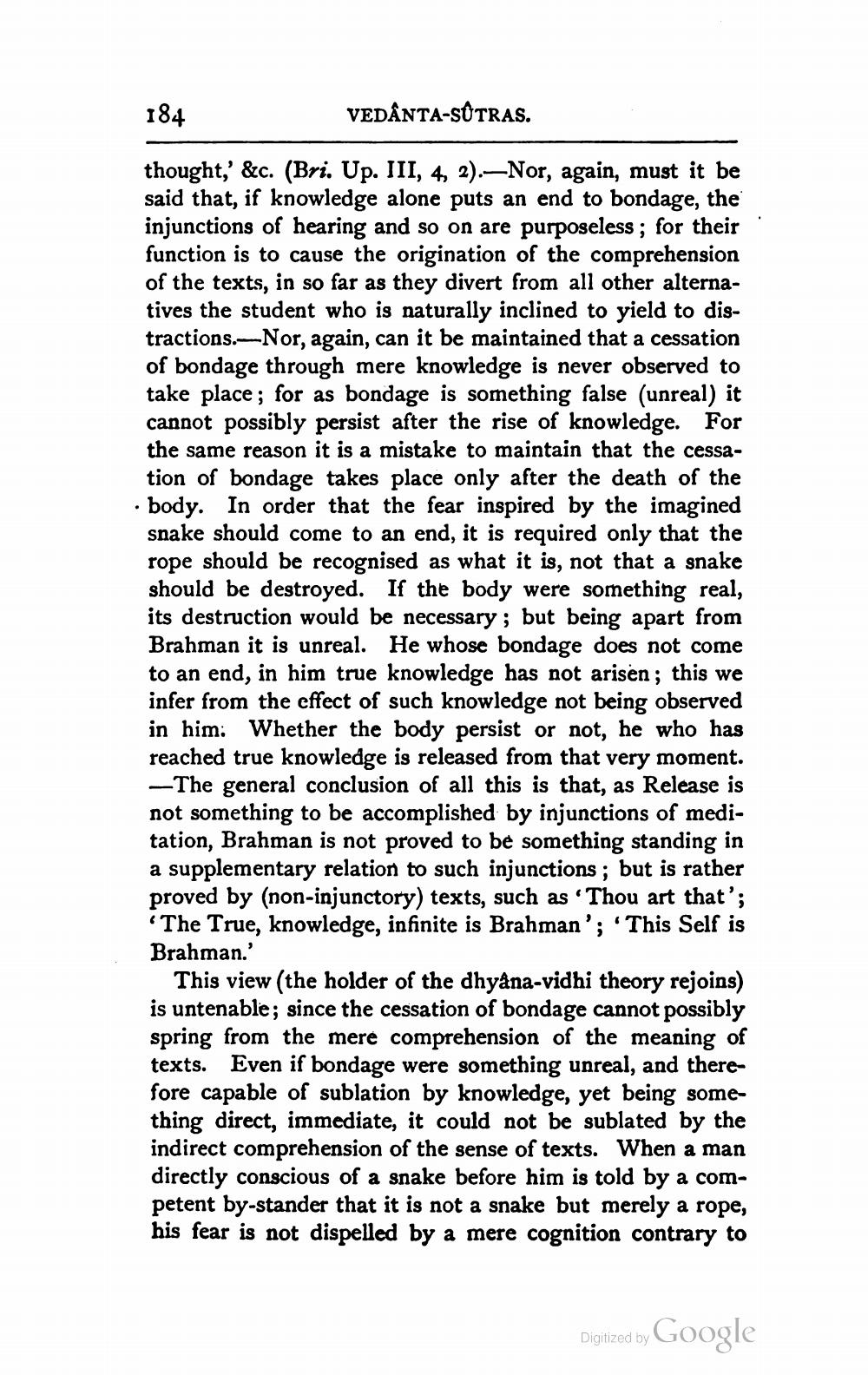________________
184
VEDÂNTA-SOTRAS.
thought,' &c. (Bri. Up. III, 4, 2).—Nor, again, must it be said that, if knowledge alone puts an end to bondage, the injunctions of hearing and so on are purposeless ; for their function is to cause the origination of the comprehension of the texts, in so far as they divert from all other alternatives the student who is naturally inclined to yield to distractions.--Nor, again, can it be maintained that a cessation of bondage through mere knowledge is never observed to take place; for as bondage is something false (unreal) it cannot possibly persist after the rise of knowledge. For the same reason it is a mistake to maintain that the cessa
tion of bondage takes place only after the death of the ·body. In order that the fear inspired by the imagined
snake should come to an end, it is required only that the rope should be recognised as what it is, not that a snake should be destroyed. If the body were something real, its destruction would be necessary; but being apart from Brahman it is unreal. He whose bondage does not come to an end, in him true knowledge has not arisen; this we infer from the effect of such knowledge not being observed in him. Whether the body persist or not, he who has reached true knowledge is released from that very moment. -The general conclusion of all this is that, as Release is not something to be accomplished by injunctions of meditation, Brahman is not proved to be something standing in a supplementary relation to such injunctions; but is rather proved by (non-injunctory) texts, such as 'Thou art that'; "The True, knowledge, infinite is Brahman'; 'This Self is Brahman.'
This view (the holder of the dhyana-vidhi theory rejoins) is untenable; since the cessation of bondage cannot possibly spring from the mere comprehension of the meaning of texts. Even if bondage were something unreal, and therefore capable of sublation by knowledge, yet being something direct, immediate, it could not be sublated by the indirect comprehension of the sense of texts. When a man directly conscious of a snake before him is told by a competent by-stander that it is not a snake but merely a rope, his fear is not dispelled by a mere cognition contrary to
Digitized by
Digitized by Google




